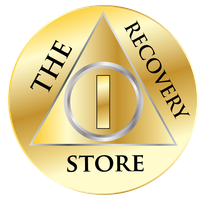All purchases go to support The Meeting Space which is a non-profit serving the Las Vegas community.
Welcome Back! New Website! We are adding all of our inventory DAILY. For CUSTOM COINS or with any questions, please
Your Guide To In-Depth Healing
Author: Lisa M. Najavits, PhD
Women and girls are now becoming addicted at greater rates than ever before, and until very recently women in recovery were dependent on treatment models based solely on work with men.
Harvard addiction and trauma expert Lisa M. Najavits offers this step-by-step program to help women overcome the often-overlooked problems associated with their drug and alcohol addictions, such as body image, trauma and violence, relationships, stress, and thrill-seeking. She explores how women differ from men in their addiction and recovery, and adapts this information to help you embark on your journey to healing. A chapter on co-occurring emotional problems allows you to evaluate whether you have any of the key disorders common among women with addiction, such as depression, post-traumatic stress, eating disorders, or phobias.
With this strengths-building workbook, begin to come to terms with your personal addiction story. Healing exercises in four areas -- feelings, beliefs, action, and relationships -- help women build self-respect. Exercises include:
In addition to these exercises and techniques, the book offers valuable resources of recovery support information.
All purchases go to support The Meeting Space which is a non-profit serving the Las Vegas community.
Welcome Back! New Website! We are adding all of our inventory DAILY. For CUSTOM COINS or with any questions, please
